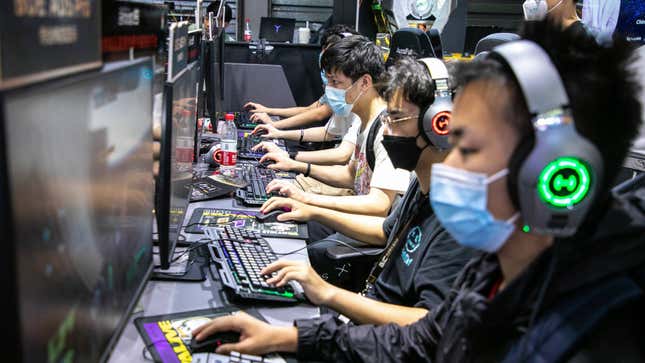
After a nine-month hiatus that put the Chinese games industry on edge, China’s culture regulators have finally started issuing new approvals for domestic games so they can be published within the country.
As first reported by Bloomberg, The National Press and Publication Association (China’s cultural regulator for news, print, and web publications) approved 45 titles today. These games are the first batch of games to be permitted since last July. While the news provides some relief for the Chinese games industry, the approvals came too late for the 14,000 game companies that deregistered during the freeze. The last record-setting approval lag was in 2018, which lasted ten months.
This has helped alleviate recent stock price volatility. Investors were recently concerned about the increased restrictions on how long minors were allowed to play video games. Last September, Chinese gaming giants Tencent and Netease lost $60 billion of stock value. That’s eight Bethesdas, or almost one entire Activision Blizzard. Today, Netease and Bilibili’s (a Chinese video hosting company that also publishes games) stock rose by 8%.
One of the reasons why new approvals took so long is because of more stringent content restrictions for games that can be accessed by minors. Chinese parents were concerned that free-to-play mobile games negatively impacted their children’s well-being, which had also contributed to the slowdown. A gray market of rental accounts cropped up almost a week later, which allowed minors to circumvent the time caps for how long they could play popular titles like Honor of Kings.
Since only around 1,200 game licenses are awarded every year, Chinese game developers have been pushed to double down on the quality of their games. These regulations have made Chinese game development incredibly competitive, and some savvy companies have tapped into the market of gamers who want premium, story-rich experiences in order to compete for licenses. However, smaller indie developers have struggled significantly with the constant sea changes in the regulatory landscape.
Only 45 licenses have been awarded so far, which is still a tiny percentage of the total number of games that are allowed to be published in China every year. Hopefully, the NPPA can match or surpass the roughly 1,200 approvals that are typical for the agency.